Karim, it will be interesting to see what the next DEXA scan shows.
I originally thought you’d need 40 to 50 days of fasting to get to where you want to be. Certainly just a guess on my part - you get to 153 lbs with 19 lbs of fat. Starting to eat again, you go up to 159 with normal non-fasting water retention. Then 19/159 = 11.95%.
For total body weight, you’re already 56% of the way from 194.4 to 153, in 12 days of fasting. This is surprisingly fast, especially with you being exceptionally mindful of salt and hydration. There’s that initial chunk of weight that comes off quickly when beginning a fast, but you’re still ahead of where I’d have expected - 177 or 178 lbs.
So, is this more water loss, lean mass loss, or have you been burning fat above the presumed limit?
Gotta love this stuff. Thanks for all the good data, and for doing this project. 




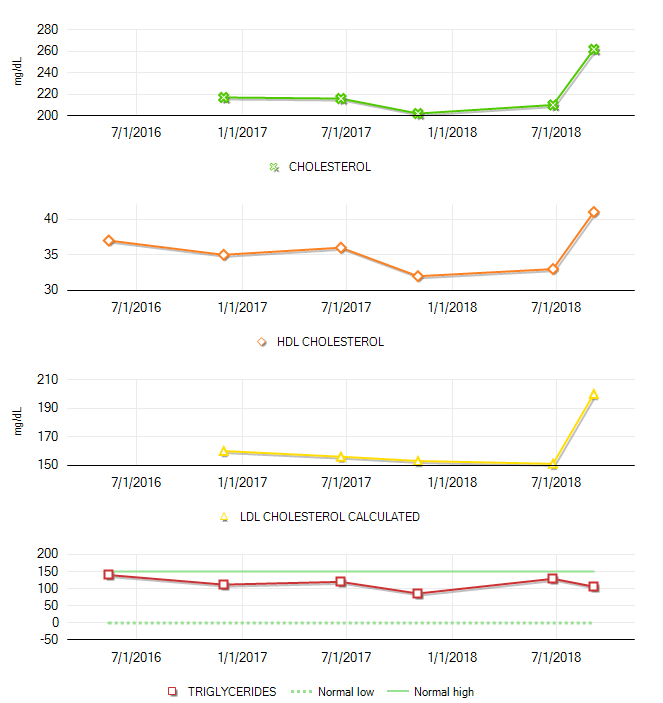
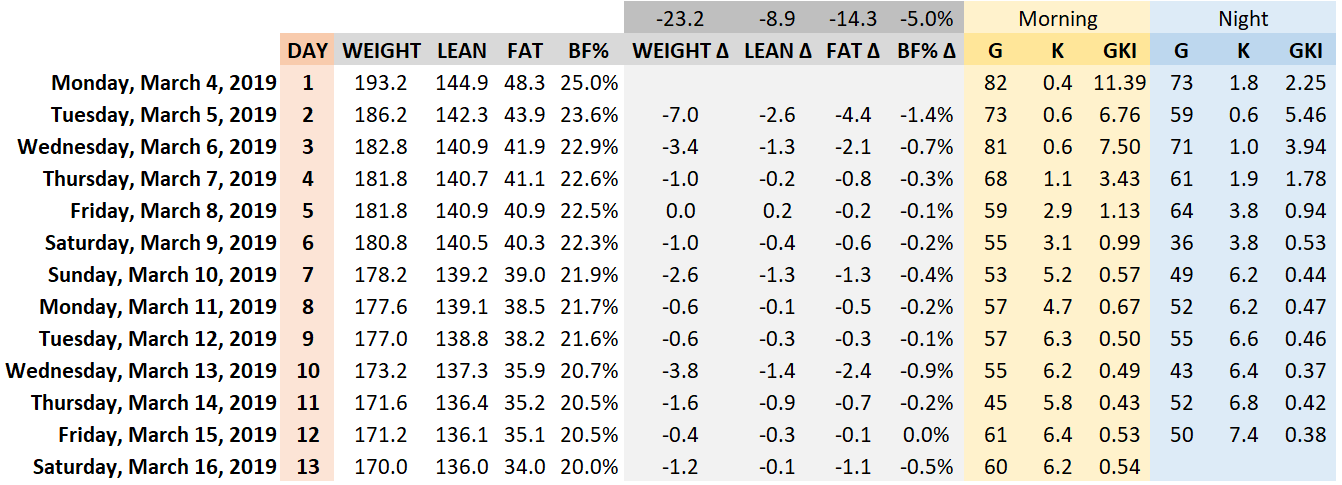
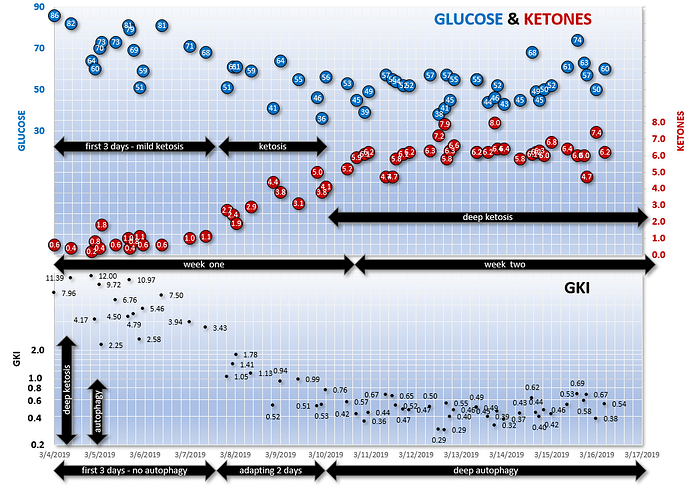
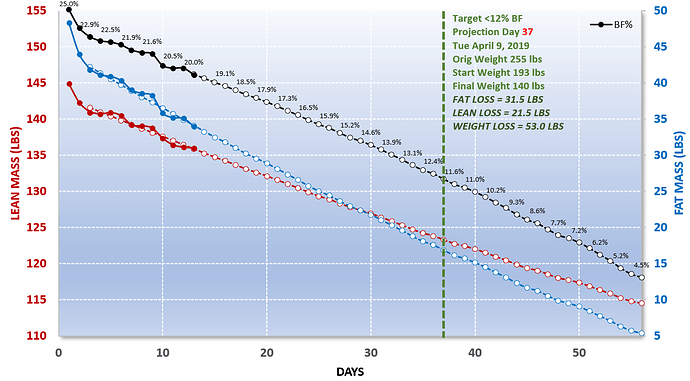
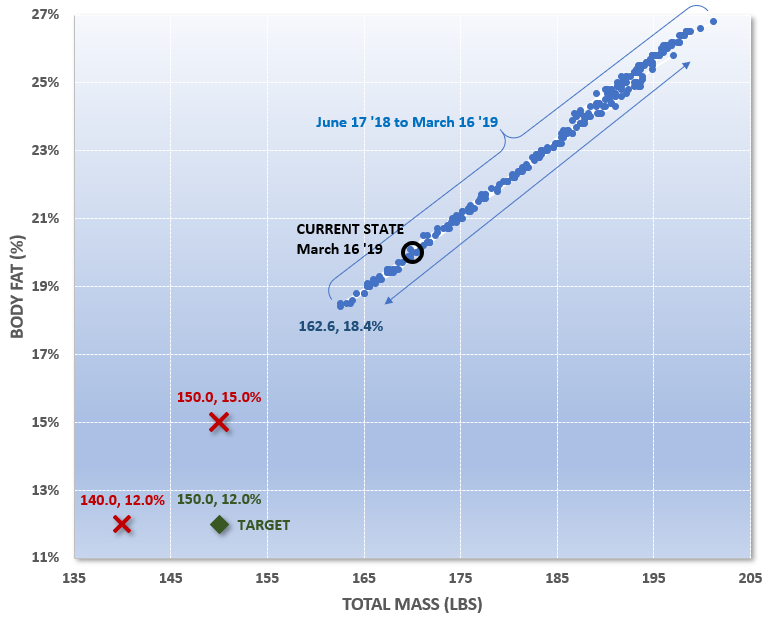
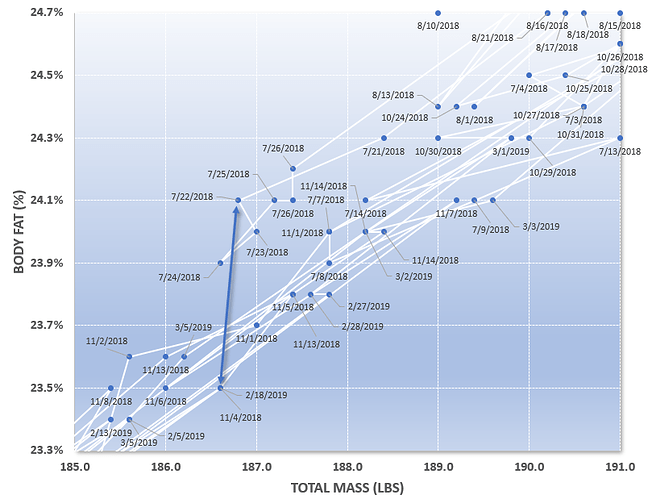
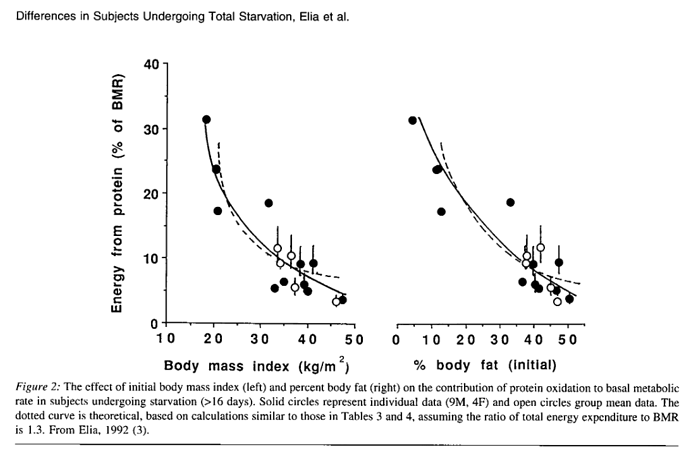
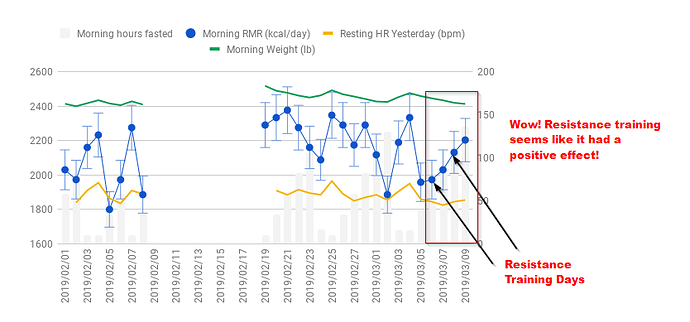
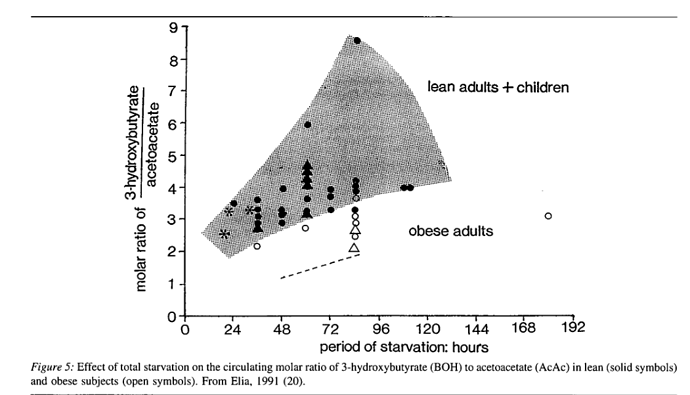
 Getting complicated all of a sudden. I see what you mean, but don’t know how it would all work out. Exercise itself stimulates autophagy in skeletal muscles, so it’s working against mTOR there. And too little as well as too much autophagy is detrimental for muscle tissue.
Getting complicated all of a sudden. I see what you mean, but don’t know how it would all work out. Exercise itself stimulates autophagy in skeletal muscles, so it’s working against mTOR there. And too little as well as too much autophagy is detrimental for muscle tissue.